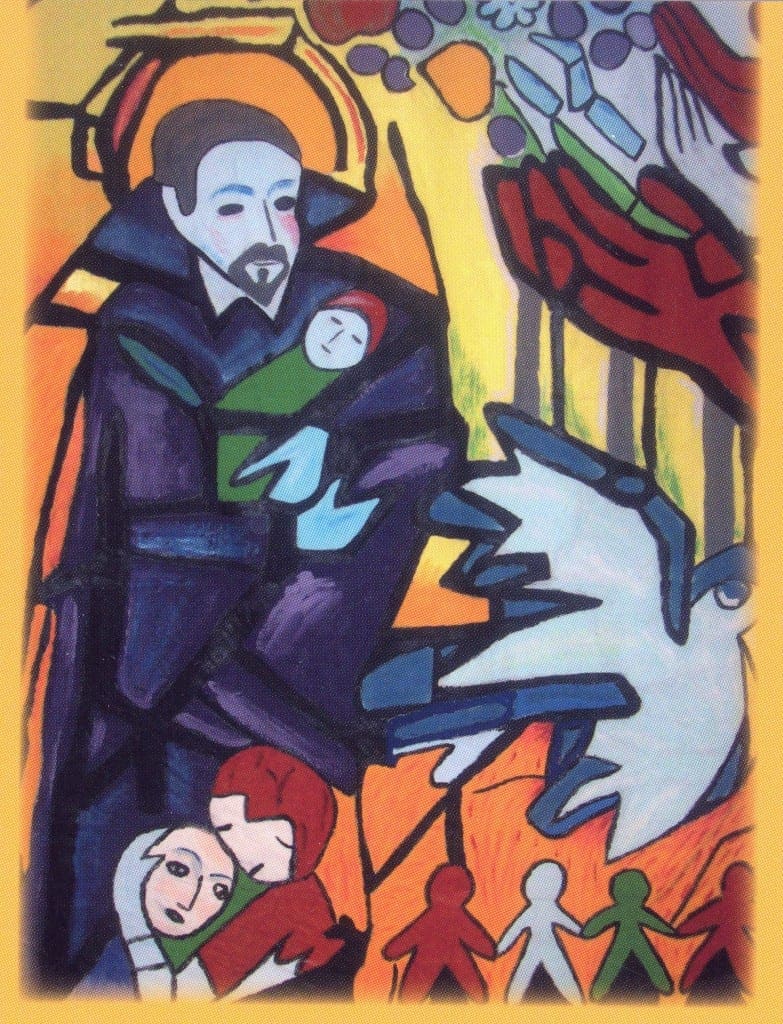 “The Church must always surprise” writes Pope Francis – St. Vincent surprised himself… and 17th century France! Can we allow ourselves to be surprised and become a surprising Church.
“The Church must always surprise” writes Pope Francis – St. Vincent surprised himself… and 17th century France! Can we allow ourselves to be surprised and become a surprising Church.
“Listen up: if the Church is alive, it must always surprise. An aspect for the living Church is to surprise. A Church that doesn’t have the capacity to surprise is a weak, sickened and dying Church. It must be taken to the recovery room, immediately.” (RomeReports)
St. Vincent walked in that tradition and certainly surprised 17th century France… and himself
“Love is inventive, even to infinity,” Vincent told his followers. He also showed them what such inventiveness meant. Few saints have been as active. If one highlights only his principal accomplishments, the list is still impressive.” Robert Maloney “Inventive Love” America Magazine
Vincent lived in a turbulent civil and ecclesiastical world. Yet, when he died all of Paris mourned.
As a teenager he fled the poverty of his peasant village, was ordained illegally at 19 and began to build a secure future as a priest eager to take on lucrative jobs. Gradually, however, he himself was surprised and underwent an extraordinary conversion that led him to devote his life to God in the service of the poor.
Struck by the need to organize practical works of charity in Châtillon, France, Vincent, then 36, founded “the Charities.” The work spread rapidly. Under different names in different places but linked worldwide as the International Association of Charities, the association today engages more than 260,000 members in 53 countries. (Frederic Ozanam and six companions adopted a similar structure centuries later to found in 1833 the Society of St. Vincent de Paul; it now has 750,000 members in 145 countries.)
Vincent also established the Congregation of the Mission, which by the time of his death had spread to Poland, Italy, Algeria, Madagascar, Ireland, Scotland, the Hebrides and the Orkney Islands.
Increasingly involved in the reform of the clergy, Vincent met with clergy leaders every Tuesday for ongoing formation. More than 12,000 young men made retreats in preparation for the priesthood. During the last 25 years of his life, Vincent established 20 seminaries.
In midlife, Vincent, age 52, joined with Louise de Marillac, a 42-year-old widow with an intense attraction to the religious life, to co-found the Daughters of Charity pioneering a a new path for women in ministy.
When the Thirty Years’ War began to wind down, Vincent organized relief. He sent Brother Matthew Regnard (nicknamed Reynard, or fox) across battle lines in Lorraine 53 times, disguised and carrying a fortune for the relief of the people.
For nearly a decade, Vincent also served on the Council of Conscience, an elite administrative body that advised the queen on the selection of bishops. Eventually, Cardinal Jules Mazarin, whose criteria for choosing bishops were more political than Vincent’s, maneuvered to have him removed. Yet Vincent remained a counselor to the great spiritual leaders of the day.
In 1652 poverty enveloped Paris, and Vincent, then 72 years old, initiated massive relief programs. “Let us love God,” he encouraged them, “but let it be with the strength of our arms and the sweat of our brows.” He organized collections and each week distributed some 6,000 pounds of meat and 3,000 eggs, as well as winter and summer clothing.
These examples are merely the highlights of his life of service. So striking were his activities that the homilist at his funeral said of Vincent, “He just about transformed the face of the church.”
When Vincent died on Sept. 27, 1660, it was clear that a deep spirituality had transformed his humanity.
By his own account, he was strong-willed and had been easily moved to anger as a young man. He also had a tendency to be moody. But he recognized these traits and the need to confront them. “I turned to God and begged him incessantly to change my dry, contentious manner and to give me a warm, gentle spirit. And by the grace of God, and with the little bit of attention that I gave to holding back the movements of nature, I have somewhat changed my dark moods.” His contemporaries witnessed that the mature Vincent was not only inventive in deeds, but had become a warm, approachable man who related to rich and poor alike in a simple, loving way. Maloney
As followers of Vincent and Louise begin a year committed to the theme “Together in Christ we Vincentians make a Difference.” Can we allow ourselves to be surprised and become a surprising Church. Can we overcome our tendency to work alone and learn to collaborate in making a difference.







Excellent article–Thanks, John. Do you know who is painter of the picture or where it is from?